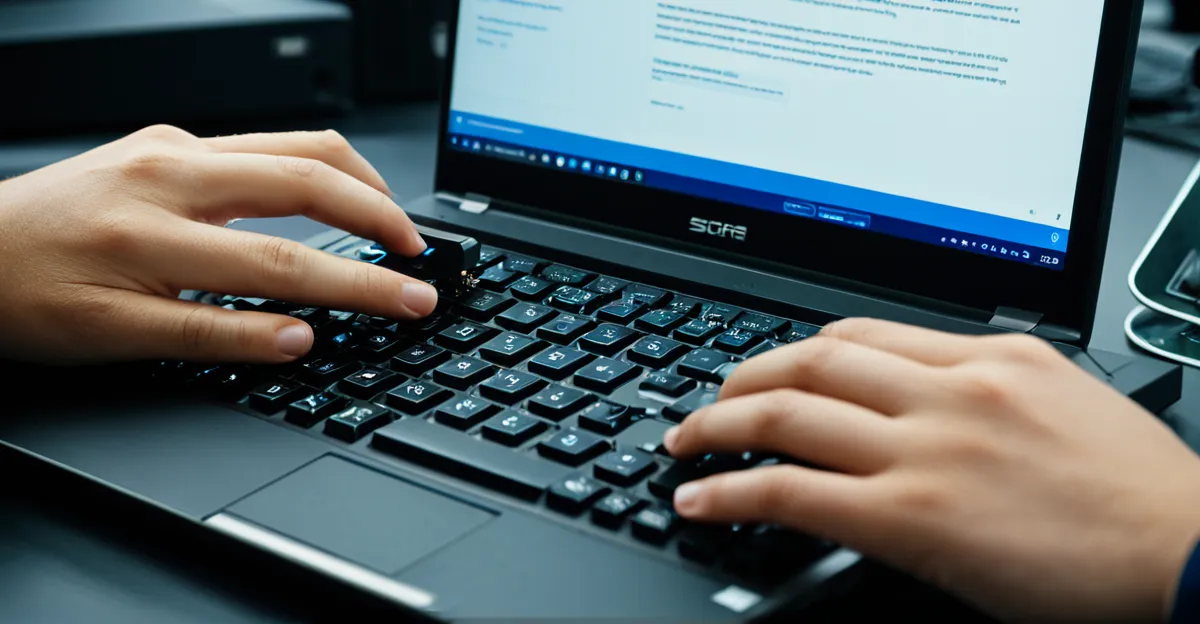Recent Developments in UK Computing Hardware for Education
Exploring innovative strides in educational technology
The landscape of UK computing hardware tailored for educational settings has witnessed significant advancements recently. UK manufacturers are increasingly focusing on creating educational technology solutions that address the unique demands of schools and universities. This includes rugged laptops designed to endure classroom wear and tear, alongside interactive tablets that support dynamic learning environments.
Also read : How Can You Future-Proof Your UK-Based Computing Hardware?
Prominent technology providers like RM Education and Cambridge-based Raspberry Pi are at the forefront, delivering affordable yet powerful devices. Their initiatives have broadened access to technology in UK schools, emphasizing inclusivity and hands-on learning. For example, Raspberry Pi’s affordable microcomputers empower students to engage in coding and electronics projects.
Concurrently, infrastructure improvements across UK educational institutions are enabling smoother integration of hardware and software. Many schools have upgraded their Wi-Fi networks and installed advanced digital whiteboards, complementing new hardware deployment. This synergy maximizes usability and encourages educators to incorporate technology in teaching more effectively.
In the same genre : How Can UK Computing Hardware Innovations Transform Our Daily Lives?
These developments not only elevate the technological experience for students and teachers but also prepare learners with essential digital skills, firmly rooting UK computing hardware at the heart of modern education.
Real-World Implementation in UK Educational Settings
Exploring practical examples and outcomes
UK schools have progressively embraced hardware deployment to enhance educational experiences. Several case studies showcase how integrating interactive whiteboards, tablets, and robotics kits has transformed classroom dynamics. For instance, primary schools in London introduced tablets to support personalized learning, seeing improved student engagement and retention.
One notable success story comes from a college in Manchester that deployed virtual reality headsets to teach complex scientific concepts. This hardware deployment made abstract topics tangible, helping students visualize and understand difficult material better. Such initiatives also facilitated collaborative projects, fostering teamwork skills.
Despite these successes, UK schools face unique challenges. Budget constraints often limit the scale of hardware procurement. Additionally, varying levels of teacher tech proficiency require tailored training programs. To address this, some schools implemented phased rollouts, gradually introducing new devices alongside professional development sessions.
In rural areas, infrastructure limitations like poor internet connectivity have hindered hardware deployment. Solutions included offline-compatible software and localized content, allowing uninterrupted learning despite connectivity issues.
These UK case studies underscore that while challenges exist, thoughtful hardware deployment combined with tailored solutions can significantly benefit educational settings. This paves the way for wider adoption across the country.
Impact on Teaching and Student Learning
Advanced hardware has significantly improved lesson delivery in digital classrooms. Devices like interactive whiteboards and tablets enable teachers to present materials dynamically, catering to diverse learning styles. This enhancement supports clearer explanations and more engaging lessons, increasing student attention and participation.
Personalised learning opportunities have expanded through adaptive software tools integrated into teacher tools. These allow educators to tailor content to individual student needs, helping to address varied learning paces and preferences. For instance, students struggling with particular concepts receive targeted practice, while advanced learners explore enrichment materials.
Teachers often report a positive transformation in their classrooms due to technology integration. Many appreciate how digital tools simplify administrative tasks, freeing time for focused teaching. Further, real-time data from learning platforms lets teachers adjust instruction promptly, improving student outcomes.
In summary, the impact on learning in digital classrooms is profound, driven by technology that enriches teaching methods, individualizes student engagement, and enhances overall classroom effectiveness. This shift represents a pivotal step forward in education, offering tailored support while enabling educators to leverage powerful tools for better results.
UK Initiatives and Institutional Support
Driving innovation in education technology
The UK government has actively promoted EdTech initiatives to enhance learning experiences and hardware adoption in schools. Programs such as the EdTech Strategy aim to integrate innovative technologies like tablets, interactive whiteboards, and robotics in classrooms nationwide. These government-backed initiatives ensure funding and guidance, making hardware more accessible and easier to implement within diverse educational settings.
Leading UK universities and research centres play a pivotal role in advancing education policy through rigorous research and pilot projects. Institutions such as University College London and the University of Cambridge collaborate closely with schools to evaluate the effectiveness of EdTech solutions. Their work influences government decisions and shapes education policies that support adopting new hardware.
Partnerships between academia and private technology firms further accelerate EdTech adoption. Collaborations with companies specializing in educational hardware foster the development of bespoke devices tailored to UK curricula. This synergy ensures that technological tools meet both pedagogical needs and practical classroom demands. By combining governmental support, academic insight, and industry innovation, the UK creates a robust ecosystem for EdTech growth that benefits educators and learners alike.
Data and Trends Shaping the Future of EdTech in the UK
Educational technology trends in the UK reveal a steady increase in computing hardware adoption rates across schools and universities. Recent UK EdTech statistics highlight that over 75% of educational institutions have integrated personal computing devices, such as laptops and tablets, into their daily learning environments. This surge reflects a strategic move to harness technology for enhanced student engagement and personalized learning pathways.
Emerging trends point to a growing emphasis on interactive hardware like touchscreens and virtual reality (VR) tools. These innovations are predicted to drive the next wave of immersion in classroom experiences. Additionally, the rise of cloud-based hardware infrastructure supports remote learning and collaborative projects, further shaping educational practices post-pandemic.
Experts underline this trajectory as a balancing act—ensuring accessibility while pushing for innovation. They stress that ongoing hardware upgrades must align with software and curriculum advancements to fully realize EdTech’s potential. Overall, the UK’s educational technology landscape is evolving rapidly, driven by practical hardware adoption rates and forward-looking trends that promise to redefine how education is delivered and experienced.

